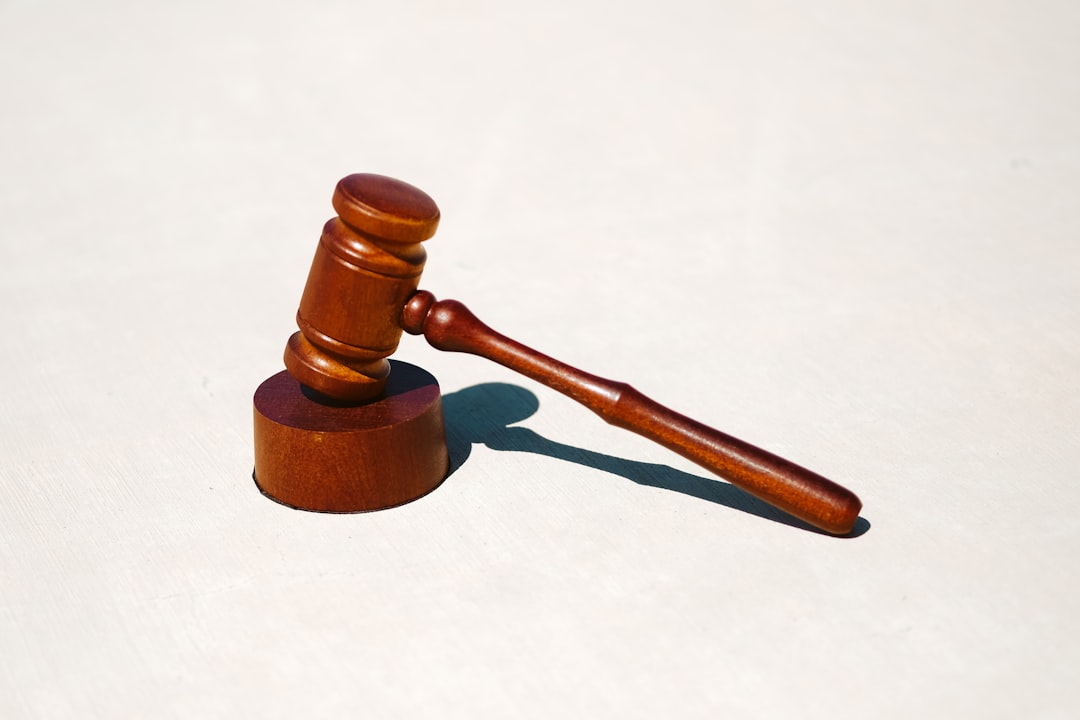In Louisiana, IRS impersonation robocalls are common but illegal. Document and save evidence if you receive such a call, as strict state laws protect consumers from unwanted robocalls via the Telephone Consumer Protection Act (TCPA). Never share personal info with suspected scammers, instead report them to the Federal Trade Commission (FTC) and local law enforcement. Suing for robocalls in Louisiana is challenging but possible if calls violate privacy rights or result in financial loss. File a complaint with the FTC or consult an attorney specializing in consumer protection to explore legal options, including class-action lawsuits.
In the age of digital communication, IRS impersonation robocalls have become a prevalent scam targeting New Orleanians. These automated calls, often claiming to be from the Internal Revenue Service (IRS), aim to extract personal and financial information under false pretenses. This article guides you through the intricacies of these scams specific to Louisiana, outlines your legal rights, clarifies legitimate IRS communication, offers steps to protect yourself if targeted, and explores the potential for suing over such robocalls in the state.
Understanding IRS Impersonation Robocalls in Louisiana

In Louisiana, as across the United States, IRS impersonation robocalls have become a prevalent and disturbing issue for many residents. These automated calls often claim to be from the Internal Revenue Service (IRS), demanding immediate payment or threatening severe consequences for tax-related issues. The caller may even pose as an agent, asking for personal financial information over the phone. It’s crucial to understand that the IRS does not initiate contact through robocalls or ask for credit card numbers or bank account details over the phone.
If you’ve received one of these fraudulent calls, it’s important to know your rights and options. In Louisiana, as in many states, there are laws in place to protect consumers from unwanted robocalls, including those posing as government agencies. If you believe you’ve been targeted by IRS impersonation robocalls, document the calls, save any related messages or recordings, and consider consulting with a legal professional to understand if you have grounds to take legal action, such as suing for robocalls in Louisiana.
Legal Rights and Protections Against Robocalls

In Louisiana, as in many states across the country, there are strict laws and regulations in place to protect consumers from unwanted robocalls. The Telephone Consumer Protection Act (TCPA) grants individuals the right to sue for damages if they receive prerecorded or automated calls without their prior consent. This includes impersonation robocalls, which can be particularly distressing and illegal. If you’ve been a victim of such calls in New Orleans, you may have legal recourse.
Understanding your rights is essential when dealing with robocall incidents. You can file a complaint with the Federal Trade Commission (FTC) or seek legal advice from professionals specializing in telecommunications law. Since Louisiana laws align with federal regulations regarding telemarketing practices, consulting an attorney who handles TCPA cases can help determine if you have a valid claim and guide you on whether suing for robocalls in Louisiana is a viable option.
When is it Legitimate to Receive an IRS Phone Call?

It’s important to know that legitimate IRS communication typically begins with a letter in the mail, not a phone call. While the IRS does use telephone calls for certain purposes, like scheduling appointments or providing updates on tax refunds, they will never demand immediate payment over the phone or threaten to bring in law enforcement. Be wary of unexpected calls claiming to be from the IRS, especially those demanding urgent action or threatening severe consequences.
If you believe you may owe taxes and want to discuss your options or make a payment, initiate contact with the IRS through their official channels, such as visiting the IRS website or contacting them by mail. As for suing for robocalls in Louisiana, specifically targeting the IRS impersonation robocalls is challenging due to their prevalence and the First Amendment protections of free speech. However, if these calls violate your privacy rights or lead to financial loss, you may have grounds for legal action against the call originators.
Steps to Take If You're a Victim of IRS Impersonation

If you’ve fallen victim to an IRS impersonation robocall, it’s important to take immediate action. First, do not engage or provide any personal or financial information under any circumstances. These scammers often threaten arrest or demand immediate payment to avoid legal consequences, but these claims are false. Instead, report the incident to both the Federal Trade Commission (FTC) and your local law enforcement agency. You can file a complaint online through the FTC’s Consumer Complaint Assistant or contact your local police department to document the fraudulent attempt.
Additionally, consider documenting every detail of the interaction, including the phone number, timestamps, and any messages left. This information can be crucial if you decide to take legal action. While suing for robocalls is an option, Louisiana laws offer protections against such fraud. The Louisiana Attorney General’s Office provides resources for consumers facing scams, and you may have grounds for a lawsuit if the call caused significant harm or financial loss. Consult with a legal professional specializing in consumer rights for guidance on your specific situation, including whether you can sue for robocalls in Louisiana.
Can I Sue For Robocalls in Louisiana?

In Louisiana, as in many other states, robocalls are regulated by federal and state laws designed to protect consumers from unwanted and deceptive calls. If you’ve received a robocall impersonating the IRS or any other entity, you may have legal recourse. The Telephone Consumer Protection Act (TCPA) prohibits automated calls made without prior express consent and allows recipients to take legal action if they feel their rights have been violated.
If you believe you’ve been targeted by fraudulent or harassing robocalls in Louisiana, you can file a complaint with the Federal Trade Commission (FTC) or your state’s attorney general. While individual lawsuits against call centers or scammers can be difficult, collective actions or class-action suits have had success in holding perpetrators accountable and securing financial compensation for affected individuals. Therefore, if you’ve experienced persistent or harmful robocalls, consulting with a legal professional specialized in consumer protection law may help determine the best course of action, including the potential for suing for robocalls in Louisiana.






